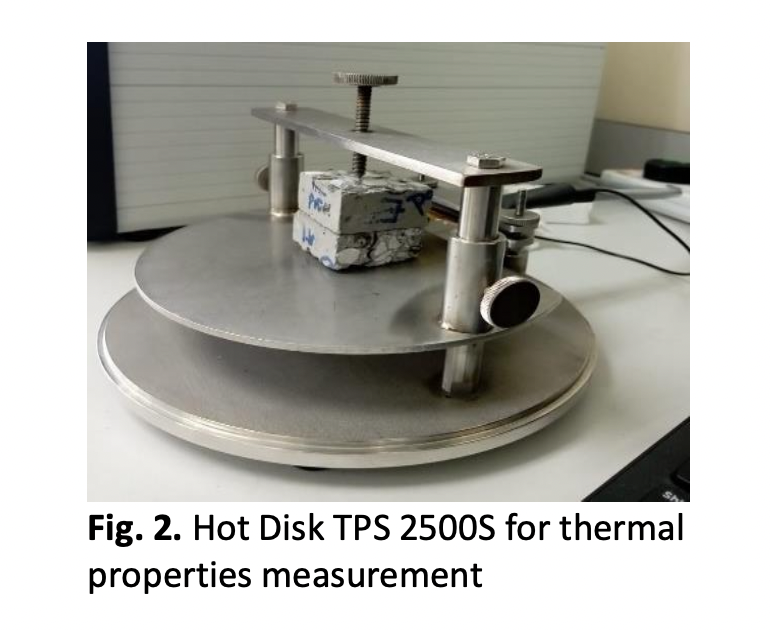The Impact of Density and Porosity on Thermal Properties of Kernelrazzo Concrete Floor Finish
DOI:
https://doi.org/10.37934/araset.29.2.291303Keywords:
Kernelrazzo, Density, Porosity, Thermal conductivity, Thermal diffusivity, Specific heat capacityAbstract
Understanding the impact of density and porosity on the thermal characteristics of kernelrazzo concrete floor finish was the study's main goal. Kernelrazzo is a combination of palm kernel shell, marble chippings in place of terrazzo, quarry dust, cement, palm oil fuel ash and water. In this study, it was determined which factors normally have the biggest influence on the thermal development of kernelrazzo concrete by conducting a scan of the literature and specifications. In this study, experiments in the laboratory were carried out at USM's HBP Concrete Lab. The components were mechanically combined in a concrete mixer with the calculated water using the Department of Environment (DoE) method. Concrete mix design for M20 grade is included in the scope of laboratory investigations. Ordinary Portland Cement (OPC), palm oil fuel ash (POFA) was used as an added pozzolana element, and quarry dust, aggregates made from palm kernel shell (PKS), and marble chippings were utilized to create the mixture. By examining kernelrazzo concrete cube samples after proper curing, the study involved estimating density, specific heat, thermal diffusivity, and thermal conductivity. Density is important to control the material's thermal characteristics of kernelrazzo concrete. Lower-density kernelrazzo concrete is a sign of more porosity. In lower-density kernelrazzo concrete, specific heat capacity, thermal diffusivity, and thermal conductivity are all decreased. There is strong relationship between thermal properties, temperature, density, water, and porosity.
Downloads





























